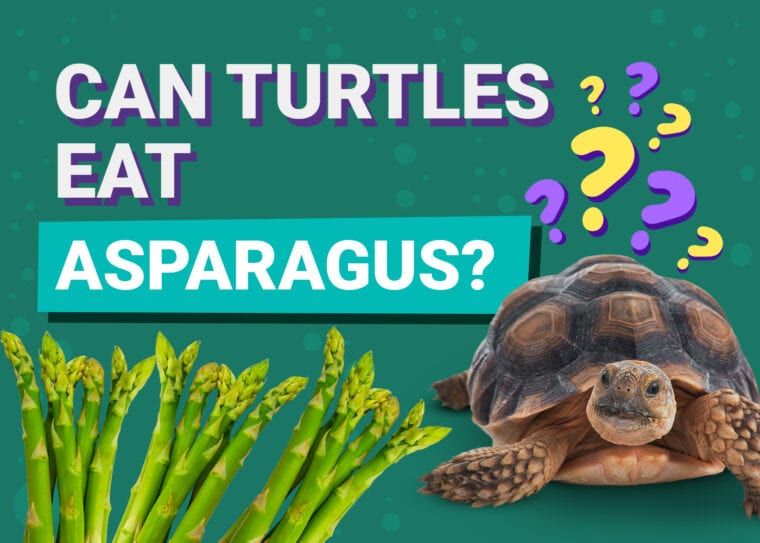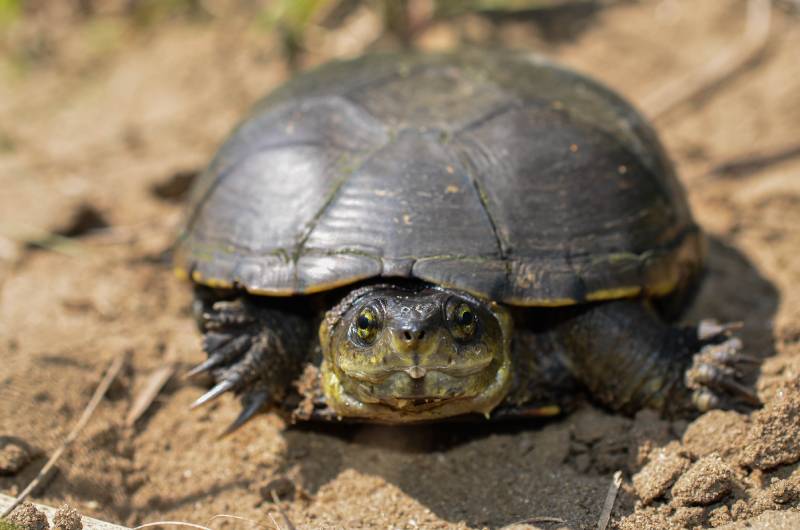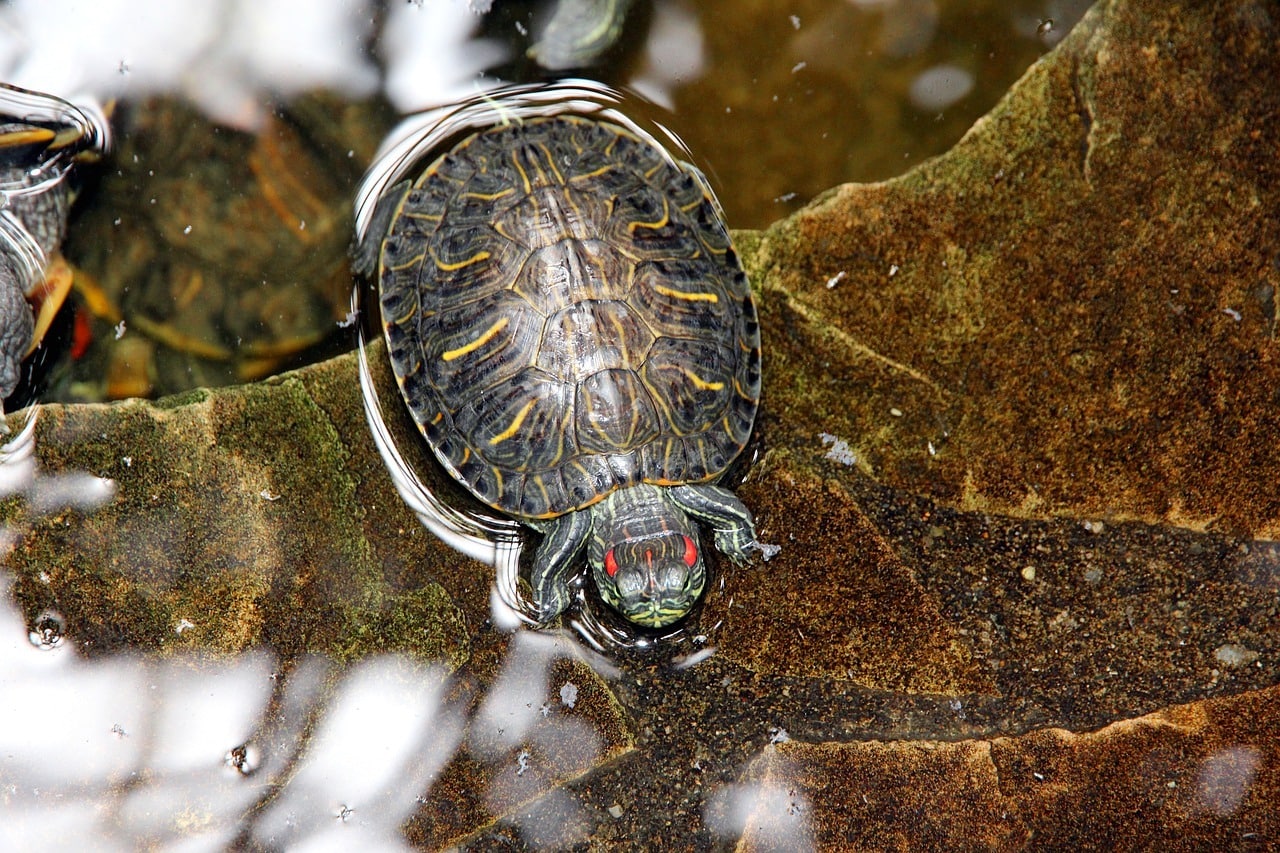
Click to Skip Ahead
Turtles are fun pets for people of most ages to spend time with. They are interesting to care for, and they are fun to watch in their environment. When it comes to feeding them, owners have a wide variety of options to choose from. Most turtle species are omnivorous, so they can eat certain types of insects, vegetables, and fruits. It is important to know the dietary requirements of your specific turtle species as they do vary. Contact your reptile veterinarian if you have any questions about diet.
If you’re like many turtle owners, you might be wondering whether asparagus is safe to feed to your pet. In short, your turtle should be able to eat asparagus as a small part of their overall diet without consequence. However, there are a few considerations to make when deciding whether this vegetable is a suitable food for your pet turtle and determining how to include it in their diet. We have the scoop for you right here!
The Benefits of Asparagus for Turtles
Turtles don’t require asparagus to be part of their diet for optimal health, but asparagus does contain nutrients that can be beneficial to a turtle’s diet overall. For instance, it contains plenty of fiber (like most plant foods that turtles eat), which can keep the gastrointestinal tract in healthy condition. Here are other nutrients that asparagus has that can benefit your turtle:
Asparagus is low in fat and calories, which means you don’t have to worry about your turtle putting on unnecessary weight when they eat it. Turtles also tend to appreciate the unique texture and flavor that asparagus has to offer.

Concerns About Feeding Asparagus to Turtles
There are a few concerns to keep in mind when feeding asparagus to your turtle. First, asparagus is considered a natural diuretic, which can increase urine, sodium, and potassium excretion. The good news is that if you are not overfeeding asparagus to your turtle, it should not affect their urination and mineral excretion enough to be a problem.
Asparagus also has a poor calcium-to-phosphorus ratio for turtles, as the phosphorus can result in depletion of calcium from the bones, and there isn’t enough calcium in asparagus to outweigh the phosphorus that it contains. This is why it should be considered an occasional snack and not a daily staple.
Asparagus Should Be Offered Sparingly
Your turtle can enjoy asparagus, but it should not be a large part of their overall diet. It does not contain enough vitamins and minerals to sustain your turtle’s health for the long term, so if it makes up too much of their diet, it can inhibit their ability to get the nutrition that they need. The more asparagus that your turtle eats, the less room they will have for things like collards, dandelions, alfalfa, parsnips, and escarole, all of which are more beneficial for meeting their nutritional requirements.
So, feel free to add asparagus to your turtle’s diet, but do so sparingly. Maybe put a couple of pieces in their meal dish, or offer a small piece as a treat between meals a couple of times a week. Keep in mind that turtles don’t need asparagus to be healthy, so you don’t have to feed yours any at all if they don’t like it or you don’t want to take away from the other, more nutritious food options out there.

How to Feed Asparagus to a Turtle
You can feed raw asparagus to your turtle, but it is extremely fibrous and can be tough for them to chew. To make things easier for them, consider lightly boiling the veggie for a couple of minutes to soften it up. Whether raw or boiled, you should cut the asparagus into small, bite-sized pieces before offering it to your turtle. Make sure cooked asparagus is completely cool to ensure that your turtle doesn’t get burned. You can always put it in the fridge or freezer for a few minutes if you’re in a hurry.
Final Thoughts
Turtles can enjoy eating asparagus whenever you feel like preparing it for them, as long as it doesn’t make up a large part of their diet. Keep in mind that turtles don’t require asparagus to stay healthy, so don’t feel pressure to feed them any if you don’t want to. If you’re in doubt, contact your veterinarian for guidance.
See also:
- Can Turtles Eat Onions? Vet Approved Facts & Safety Guide
- Can Turtles Eat Cilantro? Vet-Reviewed Facts & Safety Guide
Featured Image Credit: jackmac34, Pixabay








